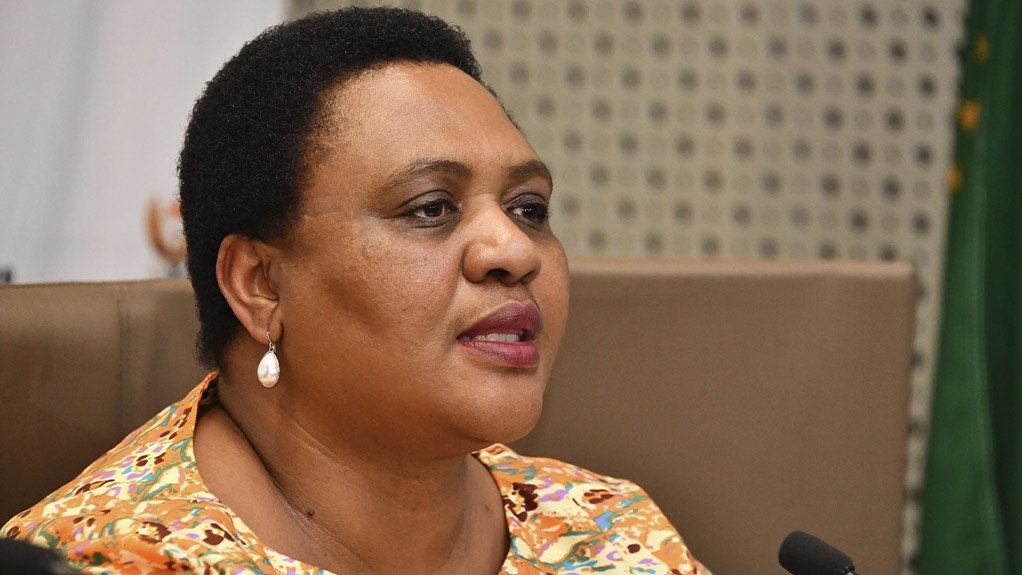The content on this page is not written by Polity.org.za, but is supplied by third parties. This content does not constitute news reporting by Polity.org.za.
The Presiding Officers of Parliament, led by National Assembly (NA) Speaker, Ms Thoko Didiza, and the Chairperson of the National Council of Provinces (NCOP), Ms Refilwe Mtshweni-Tsipane, join South Africans in commemorating Youth Day.
On 16 June 1976, over 500 protesting youths were massacred by heavily armed apartheid security forces in Soweto, while hundreds more sustained injuries. Among those brutally killed were Hastings Ndlovu, the first child to die in the shootings, and 12-year-old Hector Pieterson.
Led by Tsietsi Mashinini, the youth had taken to the streets, 49 years ago, to protest the imposition of an Afrikaans-centred educational policy, and the oppressive apartheid regime at large. This tragedy became a rallying point that inspired a nation and led a people to rise up against the brutal apartheid system.
Each year on this day, South Africans reflect on the contribution of the 1976 generation, which sparked a massive wave of resistance against the regime and inspired the oppressed black majority to rise against the apartheid machinery.
The Presiding Officers said this day’ significance cannot be overemphasised. “We must honour the legacy of the class of 1976 by reaffirming our commitment to equipping the nation’s youth with the skills, opportunities and platforms needed to thrive in a rapidly evolving global economy.”
This year, Youth Day is commemorated under the theme, “Skills for the changing world – empowering youth for meaningful economic emancipation”. Youth matters are under sharp focus as the country champions Africa’s interests in the G20 agenda, especially on the climate economy and advancing technology for job creation.
The Presiding Officers said in reflecting on this year’s theme, we need to recognise that economic emancipation is not just a goal but a necessity for sustainable development and social justice.
South Africa’s youth, who constitute over a third of the population, face an unemployment rate of 46.1%, with 3.7 million young people not in education, employment or training. The Fourth Industrial Revolution, climate change, and shifting labour markets demand a workforce adept in digital literacy, green technologies and entrepreneurial innovation. Despite these various challenges, including socio-economic obstacles, the youth are resilient, resourceful and actively engaged in various aspects of society. Many young people have been at the forefront of social and political movements, advocating for change and addressing issues such as gender inequality, racial discrimination and environmental sustainability, among others.
Parliament acknowledges that without targeted interventions, this generation risks further marginalisation.
Parliament over the past 30 years has worked tirelessly to ensure that the legal framework addresses the challenges facing the country’s youth. These efforts are reflected not only in the law but also in the work of government departments, entities and programmes. South Africa is one of the few countries globally with a Constitution that has a section focusing on children’s rights. Section 28 of the Bill of Rights in our Constitution states that “every child has the right to basic nutrition, shelter, health care and social services, as well as the right to be protected from maltreatment, neglect, abuse or degradation.” This includes youth aged 15 to 18 years.
Parliament acknowledges that without targeted interventions, the current generation risks further marginalisation. Over the past three decades, Parliament has enacted a comprehensive legal framework to address youth challenges. Section 28 of the Constitution enshrines children’s rights to nutrition, shelter, healthcare, and protection from harm –applying also to youth aged 15 to 18.
Key legislation passed to support youth development includes the National Youth Development Agency Act (2008), the Children’s Act (2005), the Child Justice Act (2008), the Basic Conditions of Employment Act (1997), the South African Schools Act (1996) and the Skills Development Act (1998). Other important frameworks include the Broad-Based Black Economic Empowerment Act (2003), the Commonwealth Youth Charter (2005), the Industrial Policy Action Plan, and the National Development Plan.
The Presiding Officers urged government, business, and civil society to invest in scalable solutions – including reskilling initiatives and support for youth-owned enterprises. They commended the robust debate at the Youth Parliament sitting on 13 June 2025, which amplified young voices on skills development, gig economy protections and gender equity. These discussions will inform the Youth Economic Empowerment Strategy 2025.
The Presiding Officers called on young Members of Parliament to participate meaningfully in the upcoming P20 Young Parliamentarians’ Conference, ahead of the 11th G20 Parliamentary Speakers’ Summit (P20) in Cape Town. They highlighted three key areas of youth advocacy: expanding digital inclusion through broadband and AI training; ensuring a just transition that benefits youth through green job creation aligned with the Climate Change Bill; and fostering global partnerships to scale youth-led innovations in agriculture, technology and the creative industries.
During the P20 Summit in October 2025, Parliament will showcase South Africa’s youth empowerment model, emphasising skills development as a pillar of global solidarity.
Issued by Parliament
EMAIL THIS ARTICLE SAVE THIS ARTICLE ARTICLE ENQUIRY FEEDBACK
To subscribe email subscriptions@creamermedia.co.za or click here
To advertise email advertising@creamermedia.co.za or click here











